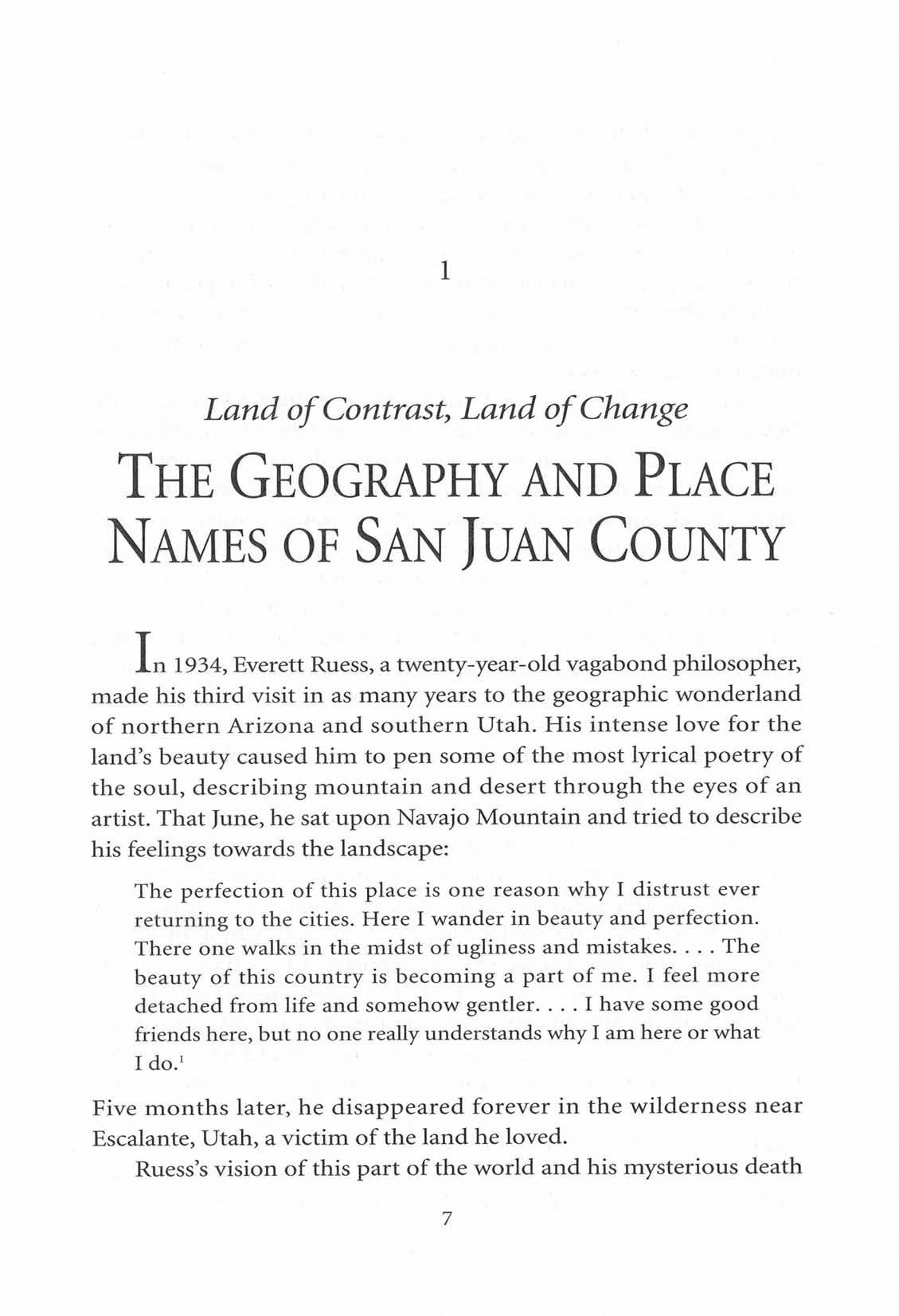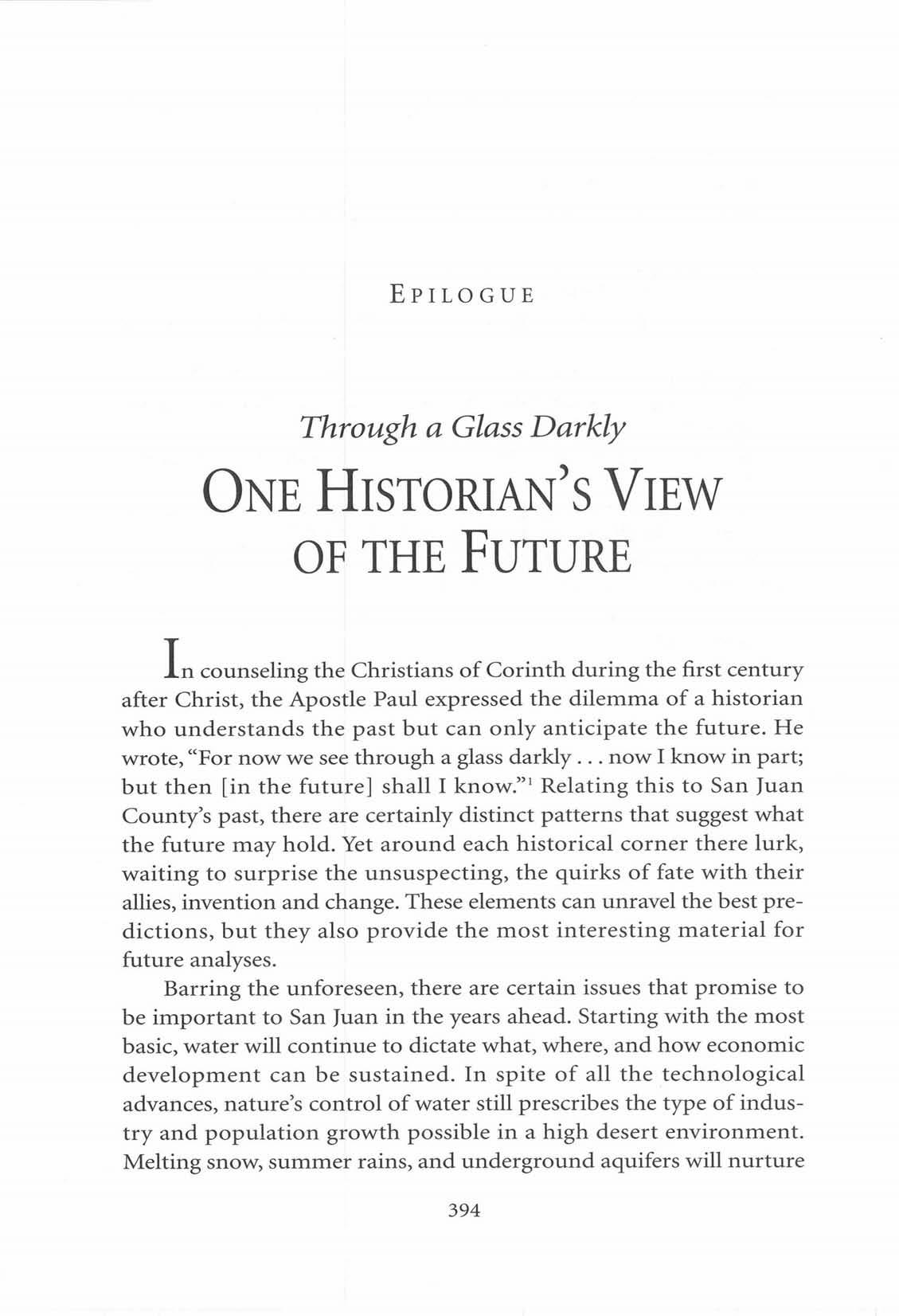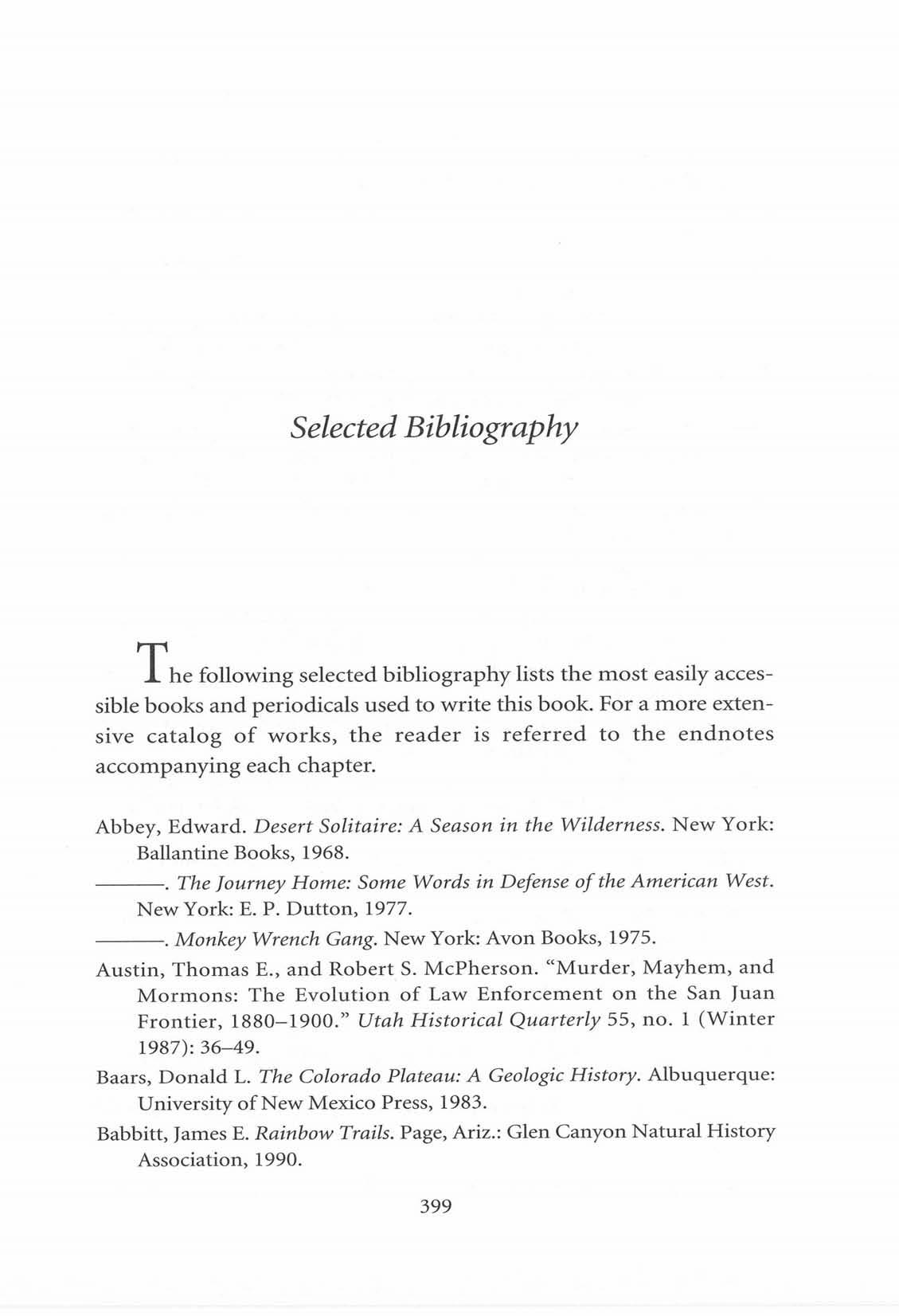Taking Care of Its Own
HEALTH AND EDUCATION
J
ohn Locke, a seventeenth-century English philosopher, wrote, "A sound mind in a sound body is a short but full description of a happy state in this world.'' For the residents of newly established San Juan County some two centuries later, no truer sentiment could be expressed. Each culture-Ute, Navajo, and Euro-American-sought to improve their quality of life within their existing circumstances, but each had a very different conception of how to achieve it. Conflict and denial resulted, as shifting worldviews clashed. The subsequent healing helped bring about a new comprehension of how to best achieve the "happy state" of which Locke spoke. Health and education were the core of these concerns. To the Native Americans, health practices included religious and spiritual curing as much as they did physical medicine. Ute beliefs, for instance, centered around the shaman, usually a man, who received his healing power either through a charm obtained from an older medicine man or through dreams provided by supernatural beings. He often learned healing rites through repeated dreams received in puberty. The dreams gave secret information concerning





















